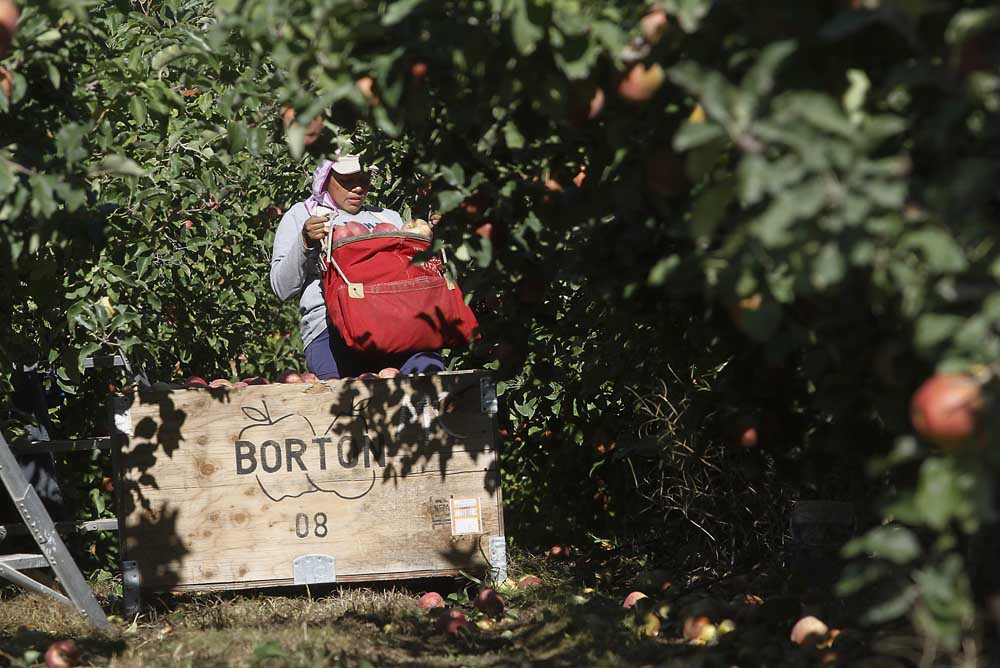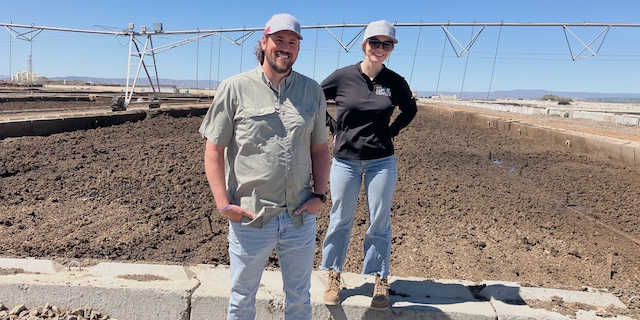Washington Farm Bureau members offer their take on first year of OT
Published 10:15 am Monday, December 12, 2022

- In this Oct. 3, 2014, file photo, a worker picks apples at Flat Top Ranch in Walla Walla County, Wash. Harvesting the vast fruit orchards of Eastern Washington each year requires thousands of farmworkers, many of them working illegally in the United States. That system could eventually come to an end as at least two companies are rushing to get robotic fruit picking machines to market.
Washington’s new agricultural overtime law caused farms to adjust work schedules this year, and more changes are expected as 40-hour work weeks become standard, state Farm Bureau members said in a survey.
Some farmers, responding to the informal survey, said they cut hours to avoid paying time-and-a-half after 55 hours worked in a week.
Others said they paid the overtime, but are concerned about continuing to pay higher wages when the threshold drops to 48 hours next year and 40 hours in 2024.
One orchardist reported shutting down workers at 55 hours.
“It impacted our operation significantly as well as directly impacting our workers’ income,” the farmer wrote. “What is going to happen in two years when we get to the 40-hour work week?”
Because of a state Supreme Court decision, dairies have had to pay time-and-a-half after 40 hours for three years. For the rest of agriculture, overtime pay is being phased in.
Washington will be the first state in which all farmworkers are paid overtime after 40 hours. California, which is also phasing in overtime, will get there in 2025.
No agency has yet documented whether Washington farmworkers lost or gained wages this year. The Farm Bureau solicited comments from its members in late November, just before the state House Labor and Workplace Standards Committee held a workshop on farmworker pay.
Most of the 138 responses came from tree fruit growers. One orchardist reported that most workers lost 20 hours a week and that the farm lost 30% of its crop.
Another orchardist reported cutting workers back by 10 to 15 hours a week. “This law is taking hours of pay out of the pocket of good, honest working people and their families,” the grower wrote.
The overtime law, by design, discourages working more than 40 hours a week. Farmworker advocates told the House committee the overtime rule will save wear-and-tear on farmworkers and give workers a reason to join a union and negotiate guaranteed hours.
Farm groups have lobbied for a higher threshold during harvests, arguing that without a seasonal exemption crops will rot and workers, who can’t make up the hours in the winter, will lose money.
“I really hope the Legislature takes up the issue,” state Farm Bureau President Rosella Mosby said.
The Farm Bureau members who submitted comments reported various experiences, mostly bad.
The “biggest disappointment” was reducing hours for workers, according to a tree fruit farmer, who said it was especially hard for seasonal foreign workers who come to support families.
“I feel bad for these hard-working people spending so much time away from their families and not being able to work longer hours to generate more income for their families,” the orchardist wrote.
Cutting hours worsened a labor shortage, according to some growers. “Having less hours per employee increases the demand for labor when labor is in short supply,” a tree fruit grower commented.
An apple grower reported holding down hours worked by local residents and hiring more foreign workers.
The orchardist predicted the local workers will rely on food assistance and subsidized health care to get through the winter.
“These workers are either leaving farming or considering it, while we backfill with foreign workers,” according to the farmer.
A grower of apples, cherries, grapes, blueberries and hops reported hiring more foreign workers to minimize overtime and restricting year-round employees to 32 hours in the winter.
“With the upcoming minimum wage increase and reduction of hours to qualify for overtime, I think many farmers, particularly small farms, will need to go out of business,” the farmer wrote.






